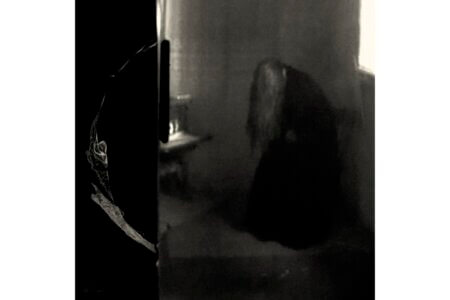
7.5
Tasha Sits Close To The Piano
Jaws of Love.
Taking a breather from his role as one of the main vocalists/faces behind popular indie rockers Local Natives, Kelcey Ayer has stepped out on his own under the moniker of Jaws of Love., with a debut album written around the time of his band’s last record, 2016’s Sunlit Youth. Ayer’s first foray into solo material is an affair indebted to both ambient electronic music and a dark, piano-driven singer-songwriter aesthetic, with the album – titled Tasha Sits Close to the Piano – being defined by a gloomier, less compromising tone than the tunes he makes during his day job.
The end result is a body of work that feels largely downcast and personal-sounding, featuring the kind of songwriting that shows a different side of Ayer’s musicianship while also reminding us why his main band are in the same league as indie rock contemporaries like Grizzly Bear and Cage the Elephant. The theme of love and dealing with its many complexities and occasional hiccups is also the lyrical centrepiece of the LP, as you’ll hear on tracks like “Hawaiian License Plates” and “Lake Tahoe”.
Named after his and his wife’s dog Tasha (her suggestion), Tasha Sits Close to the Piano doesn’t shy away from jumping between different musical directions from an instrumental standpoint, but mainly sees Ayer weaving his musical vision from behind his piano. The album’s opening track and lead single, “Jaws of Love.”, even starts off with a piano riff you’d likely associate with a rainy day or a sad scene in a romantic drama. The combination of this in addition to his yearning vocals and use of synths and drums later in the track are almost Patrick Watson-esque.
Although he tends to take more risks musically toward the end of the album, several tracks have a strong minimalist electronic element to them à la Four Tet, particularly in songs like “Microwaves” and “Before the Hurting Lands”. On “Everything”, he even surprises us with a saxophone solo buried fairly deep into the mix toward the end. The acoustic-based number “Love Me Like I’m Gone” is one of the more single-ready songs on the album, and probably sounds the most like a Local Natives tune, or at least a rough sketch of one. Album closer “Nightlight” probably could have gotten rid of its two and a half minute-long intro – or at least slashed it in half – but proves itself to be one of the most melodically strong tracks on the entire album, and a satisfying way to close it off.
It’s easy to see why Ayer used artists like Portishead and James Blake as reference points for the LP, as his mixture of a singer-songwriter piano basis with dark electronic experimentation and lyrical earnestness make Tasha Sits Close to the Piano an intriguing listen, even if the musical transitions and changes in structure heard at times – for example, during songs like “Shrink…” and “Costa Rica” – don’t always make sense. Ayer has called this album “the dark piano ballad record that I’ve always wanted to make”, and for the most part, his execution is on point.
Words by David MacIntyre
Latest Reviews
Tracks
Related Albums
Related News
Advertisement
Looking for something new to listen to?
Sign up to our all-new newsletter for top-notch reviews, news, videos and playlists.














